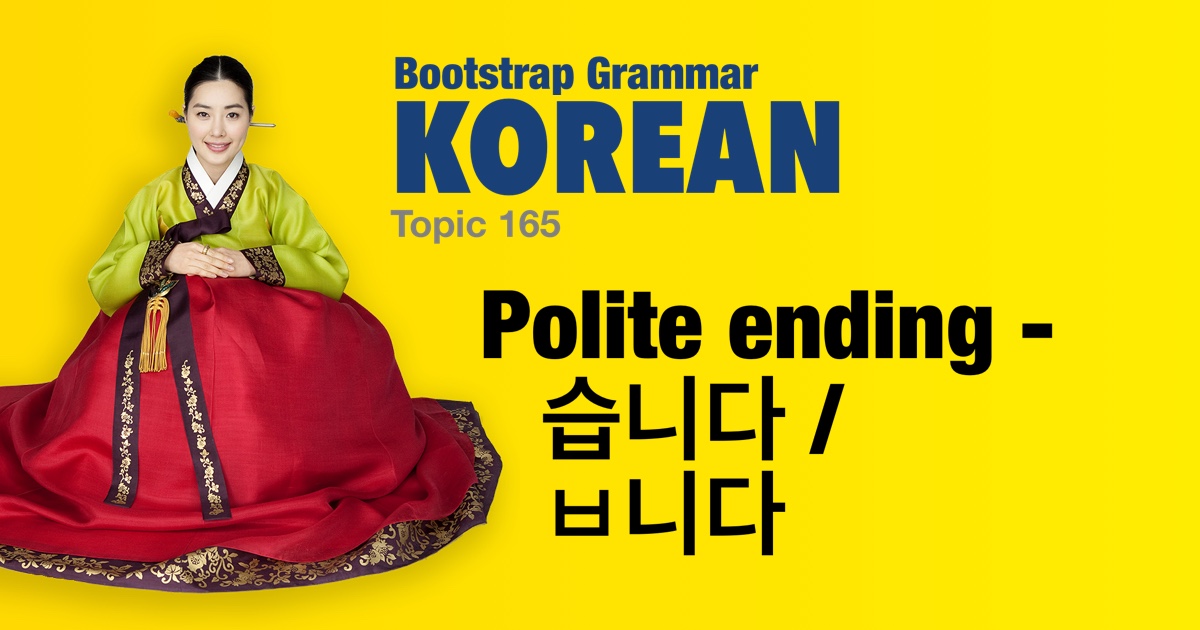Korean grammar - Polite ending - 습니다 / ㅂ니다 |
|||
|
|||
Pattern: Verb stem + 습니다 / ㅂ니다 So far we have being using the friendly/polite 요 form. The 습니다 / -ㅂ니다 Verb ending is formal polite used in media and offical language. • For Verb stems ending in a consonant add 습니다 • For Verb stems ending in a vowel add ㅂ니다. The past tense form is 았/었/였습니다 (or the Past base + 습니다) The future tense form is (으)ㄹ 겁니다 (or the Future base + 겁니다) And 입니다 is the formal version of 이다 (to be) |
| Examples: | |
|
감사합니다.
Thank you.
|
|
|
고맙습니다.
Thank you.
|
|
|
저는 이광일입니다.
I am Lee Kwang-il
|
|
|
만나서 반갑습니다.
Nice to meet you.
|
|
|
오늘 날씨가 춥습니다.
The weather is cold today
|
|
|
저는 배가 고픕니다.
I'm hungry.
|
|
|
비가 옵니다.
It's raining.
|
|
|
저는 친구를 기다립니다.
I'm waiting for my friend.
|
|
|
저는 한국을 사랑합니다.
I love Korea.
|
|
|
한국 학생들이 영어를 배웁니다.
The Korean students are learning English.
|
|
|
내일 여덟시까지 도착해야 됩니다.
You must arrive by eight o'clock tomorrow.
|
|
|
네, 알겠습니다.
Yes, (I) understand.
|
|
|
공연이 시작됩니다.
The performance is starting.
|
|
|
작년에 한국 학생들은 프랑스어를 배웠습니다.
Last year the Korean students learned French.
|
|
|
한국 대사관에 왔습니다.
(I) came to the Korean embassy.
|
|
|
어제 날씨가 너무 추웠습니다.
Yesterday the weather was very cold.
|
|
|
예전에 회사원이었습니다.
Long ago, (I) was an office worker.
|
|
|
내년에 한국 학생들은 영어를 배울 겁니다.
Next year the Korean students will learn English.
|
|
|
독일에서 살 겁니다.
(I) will live in Germany.
|
|
|
다음 주에 바쁠 겁니다.
(I) will be busy next week.
|
|
 |
|



